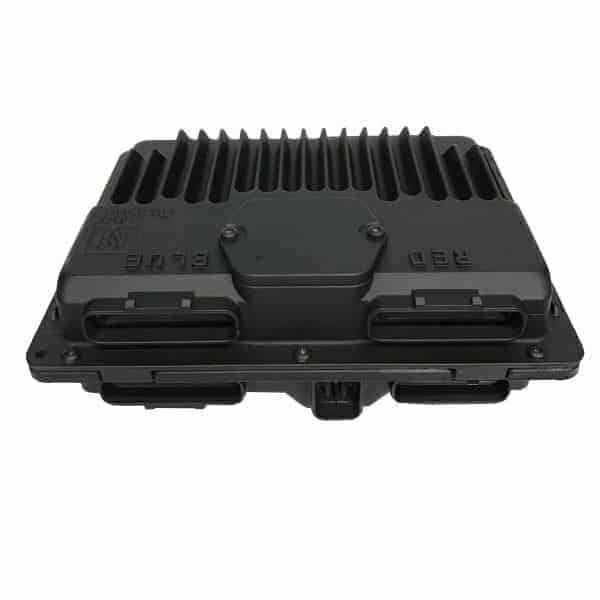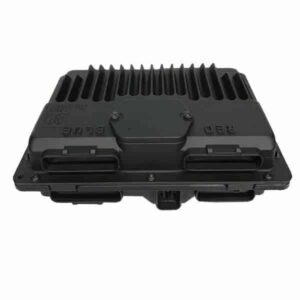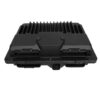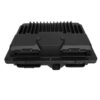Restore Your Truck’s Brainpower and Performance
Is your 1998 or 1999 Chevy truck acting possessed? Unexplained stalling, rough idling, a persistent check engine light, or even a complete no-start condition can be incredibly frustrating. As a mechanic with over two decades of experience under the hood, I’ve seen these exact issues hundreds of times. More often than not, the culprit is a failing Powertrain Control Module (PCM). This isn’t just a part; it’s the central computer of your vehicle, managing everything from fuel mixture and ignition timing to transmission shifting. When it fails, your dependable truck can become an unreliable headache.
This isn’t just any replacement part. This is a dependable, OEM Powertrain Control Module, meticulously tested and ready for a new life in your vehicle. The biggest challenge with replacing a PCM has always been the programming. Dealerships charge a fortune, and most local shops don’t have the specific equipment for these older models. We solve that problem for you. Before this module ships, we flash it with the latest GM software updates, specifically programmed to your truck’s unique Vehicle Identification Number (VIN). This ensures seamless communication between the module and your vehicle’s systems, restoring the performance and reliability you depend on. This is the most direct and effective solution to get your 1998-1999 Chevrolet 1500 PCM issues resolved.
From the Diagnostic Bay: The Case of the Intermittent No-Start
I remember a ’99 Silverado 1500 rolling into my shop. The owner was at his wit’s end. The truck would start fine for a week, then refuse to start for two days, with no rhyme or reason. He had already replaced the battery, starter, and fuel pump. After hooking up my high-level scanner, I noticed something odd: the PCM wasn’t always sending the ‘on’ signal to the fuel pump relay. A visual inspection of the original module revealed no damage, but a bench test confirmed it was failing internally under certain temperature conditions. We installed a VIN-programmed PCM just like this one, performed the quick security relearn, and the truck fired up instantly. The customer called me a month later, ecstatic that his truck was finally reliable again. This is a classic failure scenario for these modules.
Common Signs of a Failing PCM
- ✔ Check Engine Light is illuminated with codes like P0601 (Internal Control Module Memory Check Sum Error) or P0606 (ECM/PCM Processor Fault).
- ✔ Your vehicle fails to start or starts intermittently.
- ✔ Noticeable decrease in fuel economy.
- ✔ Engine stalling, stuttering, or misfiring while driving.
- ✔ Harsh or erratic automatic transmission shifting.
- ✔ Failure to pass an emissions inspection.
A Straightforward Guide to Installation
Installing your programmed 1998-1999 Chevrolet 1500 PCM is a job most DIYers can handle in under an hour with basic hand tools. Our pre-programming eliminates the most complex step.
- Safety First: Disconnect the negative terminal from your vehicle’s battery to prevent any electrical shorts.
- Locate the PCM: On most of these trucks and SUVs, the PCM is located in the engine compartment, typically on the driver’s side near the fender or firewall.
- Disconnect the Connectors: Carefully unlatch and remove the electrical wiring harness connectors from the old PCM. Inspect them for any corrosion or damage.
- Remove the Old Module: Unbolt the old PCM from its mounting bracket and remove it from the vehicle.
- Install the New Module: Mount your new, pre-programmed PCM onto the bracket and securely reconnect the wiring harnesses. Ensure they click into place.
- Reconnect the Battery: Reattach the negative battery terminal.
- Perform Security Relearn: You will need to perform a simple security relearn procedure (often called a ‘key-on’ relearn) to sync the new PCM with your vehicle’s anti-theft system. This typically involves turning the key to the ‘ON’ position for 10-15 minutes. We include instructions for this simple process.
Will This Fit My Vehicle?
This module is a direct replacement for service number 09355699 and is compatible with a wide range of 1998-1999 GM trucks, vans, and SUVs. Please verify your part number or match your vehicle from the list below. This part is a confirmed fit for the following vehicles when equipped with ID 09355699:
CHEVROLET/GMC SUBURBAN 1500/2500 (1998-1999)
CHEVROLET TAHOE / GMC YUKON (1998-1999)
CADILLAC ESCALADE (1999)
CHEVROLET ASTRO / GMC SAFARI (1998)
CHEVROLET EXPRESS / GMC SAVANA 1500/2500/3500 (1998-1999)
CHEVROLET S10 / GMC SONOMA (1998)
CHEVROLET BLAZER / GMC JIMMY (1998)
OLDSMOBILE BRAVADA (1998)
ISUZU HOMBRE (1998)
Frequently Asked Questions
Why do I need to provide my VIN?
Your Vehicle Identification Number (VIN) is essential. We use it to program the PCM with the correct software and calibrations specific to your truck’s engine, transmission, and options. This ensures perfect compatibility and performance right out of the box.
Is this part difficult to install?
No. The physical installation is simple, requiring only basic hand tools to swap the module. Since we handle the programming, you avoid a complicated and expensive trip to the dealership. You will only need to perform a simple security relearn procedure, for which we provide instructions.
What is a security relearn procedure?
It’s a simple process that syncs the new PCM to your vehicle’s anti-theft system so the engine will start. It typically involves leaving the key in the ‘on’ position for about 10-15 minutes. It requires no special tools and is a necessary step for all PCM replacements on these vehicles.
This is a used part. Is it reliable?
Absolutely. These are original equipment (OEM) modules sourced from salvaged vehicles. Each unit is inspected and tested to ensure it is fully functional before being programmed and shipped. It’s a cost-effective way to get a genuine GM part without the high dealer price tag.
Will this fix my check engine light?
If your check engine light is caused by an internal PCM failure (like codes P0601, P0605, P0606), then yes, this part is the correct fix. However, a check engine light can be caused by many other things. It’s always best to have your vehicle scanned for codes to properly diagnose the issue first.



